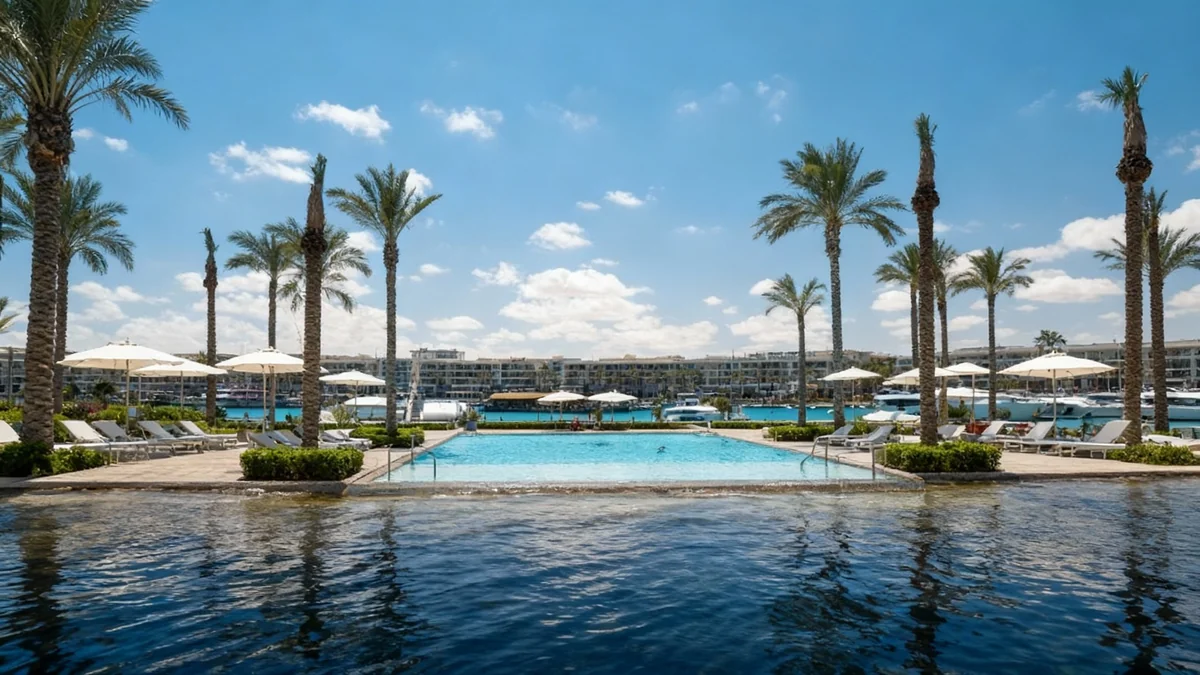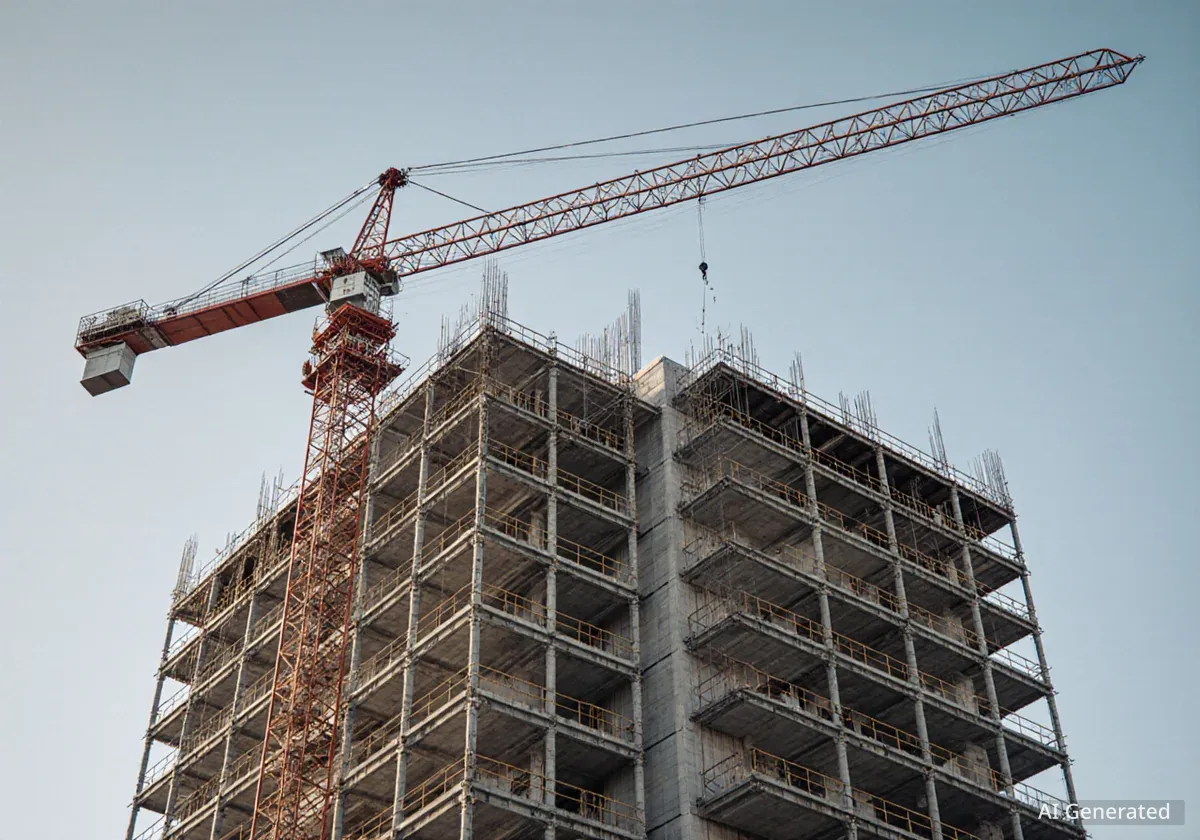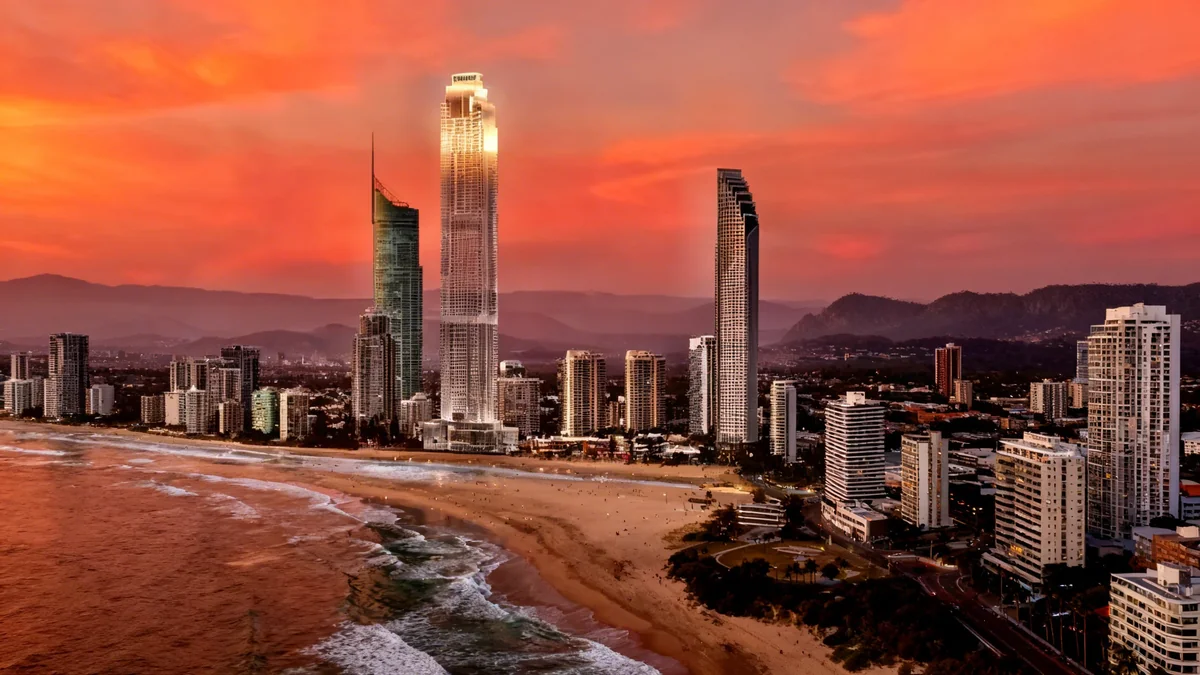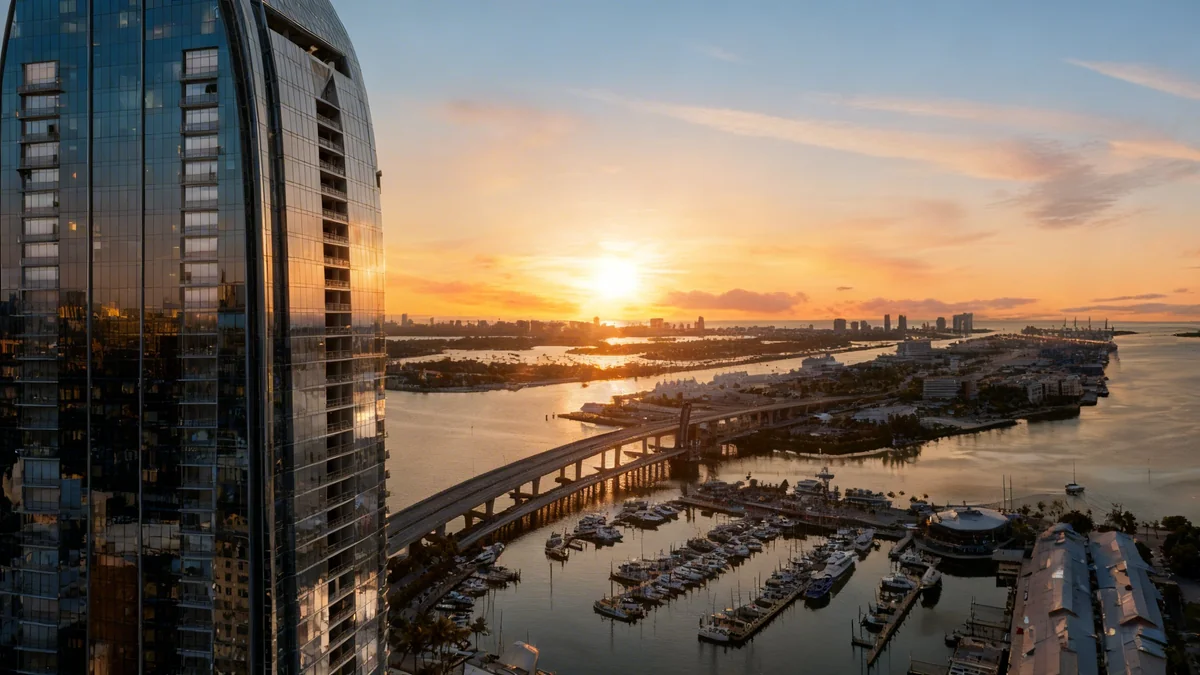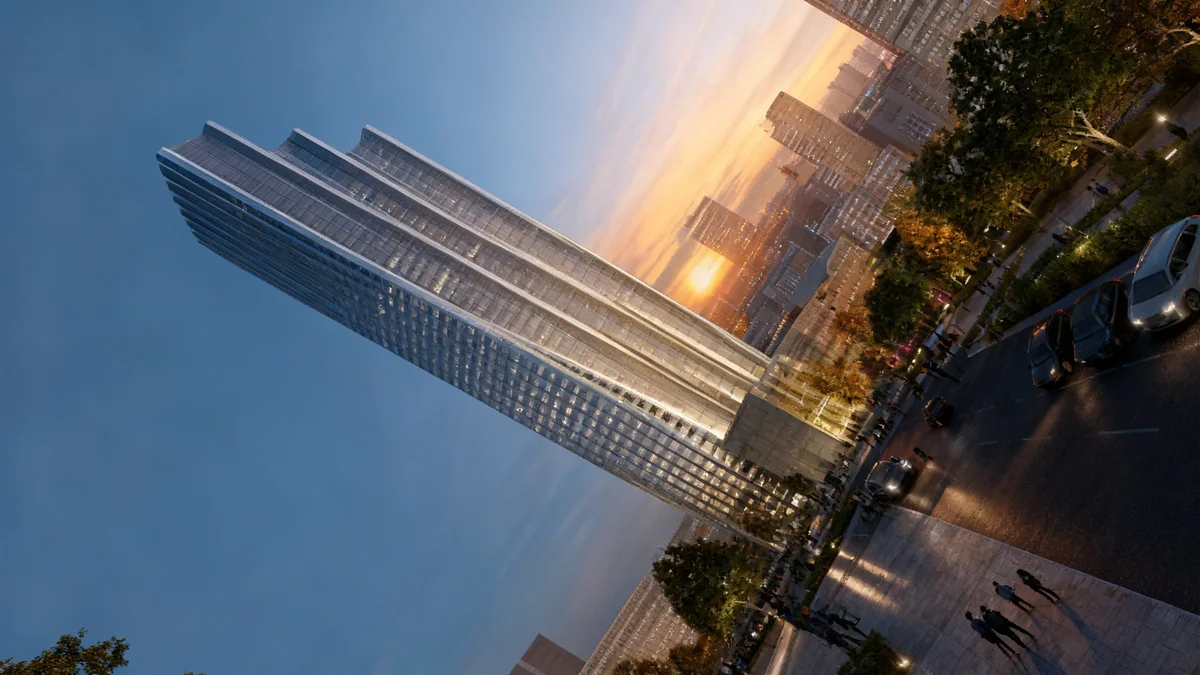Mohamed Alabbar, the visionary behind Dubai's iconic Burj Khalifa and Dubai Mall, is spearheading a significant international expansion of his real estate empire. The 68-year-old Emirati businessman is now focusing on ambitious developments across multiple continents, including large-scale projects in Egypt, Serbia, Albania, and Madagascar, marking a new phase in his career.
Key Takeaways
- Mohamed Alabbar, known for the Burj Khalifa, is expanding his real estate ventures globally.
- His company, Eagle Hills, is developing multi-billion dollar projects in countries like Egypt, Serbia, and Georgia.
- Alabbar aims to create 'one-billion population economies' by investing in overlooked markets.
- He also maintains roles at Emaar, Americana, and Zand Bank, showcasing diverse business interests.
- Despite criticisms, Alabbar emphasizes job creation and economic benefits for local communities.
A Vision Beyond Dubai
Alabbar, a key figure in modern Dubai's development, is currently touring the Marassi resort on Egypt's Mediterranean coast. This vast development, which took over a decade to build, highlights his renewed focus on international markets. His efforts mirror the United Arab Emirates' broader strategy to extend its influence beyond its borders.
He leads Eagle Hills, a private investment fund supported by wealthy Abu Dhabi families. This venture is central to his global ambitions. Alabbar also co-owns a majority stake in Americana, a major fast-food group in the region, alongside Saudi Arabia's sovereign wealth fund. In 2016, he launched Noon, an e-commerce platform designed to compete with Amazon in the Middle East.
Fast Facts: Alabbar's Empire
- Emaar: Developer of Burj Khalifa and Dubai Mall.
- Eagle Hills: Private investment fund for global real estate.
- Americana: Major fast-food group.
- Noon: E-commerce platform.
- Zand Bank: UAE digital lender.
Early Life and Rise to Prominence
Mohamed Alabbar's journey began with modest roots. He was one of 13 children, growing up in a two-room state-provided home. His father was a dhow captain who survived two shipwrecks. After graduating from Seattle University in 1981 on a UAE government scholarship, Alabbar worked at the central bank. He then became director of a Dubai investment company in Singapore, gaining exposure to the competitive Asian retail market.
Upon returning to Dubai in the early 1990s, he established a new government department focused on economic development. He also oversaw several other state-owned companies. In 1997, with the support of Sheikh Mohammed bin Rashid al-Maktoum, Dubai's then-crown prince, Alabbar founded Emaar. The government provided prime land, later swapped for a stake in Emaar, which it still holds today.
"I came from social housing. I belong there," Alabbar stated, rejecting the 'billionaire' label as impolite within Emirati culture.
Dubai's Growth Story
Dubai experienced rapid development after Sheikh Mohammed bin Rashid al-Maktoum became its de facto ruler in 1995. This period saw the city transform into a global hub, driven by ambitious real estate projects and an influx of foreign residents seeking a safe, low-tax environment. Alabbar played a crucial role in this transformation.
Global Ambitions and Diverse Ventures
Alabbar's international ventures extend far beyond the Middle East. Emaar already operates in countries like Egypt and India. Eagle Hills is actively developing multi-billion dollar waterfront projects in Belgrade, Serbia, and Riga, Latvia. The company also plans a beachfront and marina on Albania's Adriatic coast.
In September, Eagle Hills announced a significant $5.5 billion investment in Georgia for two developments, including one in the capital, Tbilisi. The company also owns hotels in Croatia, Munich, and Muscat. Alabbar's ambition is evident in his desire to create a resort in Madagascar, which he describes as wanting to "build my own Bali." He also plans a large project in Montenegro and has earmarked land in North Macedonia's capital, Skopje, for future development.
His business interests are not limited to real estate. He chairs Zand Bank, a digital lender in the UAE, and continues to serve as managing director for Emaar, which is listed and manages malls and hotels.
Navigating Challenges and Criticisms
Alabbar's career has faced challenges. Emaar and Alabbar experienced the impact of Dubai's property crash during the global financial crisis. He also lost millions in earlier US property and African mining ventures. His direct management style has drawn criticism from some, with one executive describing it as "megalomaniac."
However, Alabbar maintains a strong reputation for completing projects quickly, a valuable trait in the ambitious, oil-rich Gulf region. Jim Krane, author of Dubai: The Story of the World's Fastest City, notes that Alabbar's "track record of project delivery was much stronger than his rivals'."
Alabbar acknowledges past missteps. "During 20 years of experience, I made a few mistakes. Maybe I'm a better manager now," he reflected.
Addressing Concerns
Alabbar's global expansion has also faced criticism regarding the exclusivity of his developments. The 7km beachfront of Marassi in Egypt, for instance, has been called a "copy and paste" of Dubai and part of what some Egyptians term "the evil coast" due to its high prices, which exclude most of the public. Similar concerns have been raised about the Belgrade waterfront project, with activists alleging a lack of transparency in its award to Eagle Hills.
Albania's Durrës port project, also initially linked to Emaar and awarded without a public tender, has drawn fire from opposition lawmakers. Critics suggest Emaar and Eagle Hills serve as tools of UAE soft power, extending the country's influence abroad.
Alabbar counters these points by stating that independent auditors drafted the Serbian and Albanian contracts. He also argues that Albania struggled to find other investors for the port development. He insists that singling out the UAE for leveraging commercial influence is unfair, citing historical examples of other nations doing the same.
"We are not directed by the government to go buy a port from the Chinese. We never behave like that," Alabbar asserted.
He emphasizes that projects like Marassi, while designed for the wealthy, generate employment and boost tax revenues. This allows affluent individuals to spend their money domestically rather than abroad. "Why can't we, in Egypt, have a Mayfair? Give us a piece of the rich people here," he argues.
A Relentless Drive for Efficiency
Alabbar is known for his demanding leadership style. He admits he does not give executives a second chance if they make mistakes. "I will not tolerate fools," said Ramesh Prabhakar, vice-chair of Dubai-based luxury group Rivoli and a long-time business associate. "There is only one captain of the ship."
Despite his vast ambitions, Alabbar is also detail-oriented and focused on cost-cutting. He recently reduced Emaar's office tea selection from three types to one. To boost productivity, he banned meetings at the group during September, although staff could request permission from the CEO.
"When things are going well, I squeeze efficiency ratios to the max... in case something happens, we're fit," he explained, adding, "I'm a paranoid guy." He attributes this mindset to his experiences in Singapore and with cost-conscious Indian market executives.
Prabhakar notes that Alabbar has developed a "more human element" in recent years, now considering business from the perspective of a "larger good." In his foreign ventures, Alabbar aims to "lift communities and bring in some islands of excellence."
The UAE, unified in 1971 after discovering oil in the late 1950s, has grown at an extraordinary pace. "The country is only 50 years old," Alabbar said. "We're young, we have to work day and night to make it." This ethos drives his own relentless pursuit of new opportunities. He recently changed all the flowers at the Marassi resort, finding the previous ones insufficiently colorful, a testament to his attention to detail.
Despite his apparent restlessness, Alabbar expresses contentment with his current career phase. "I open my iPad and it's about Madagascar... it's about Noon, autonomous vehicles. And then it's about Montenegro. What a lucky man I am," he concluded.
